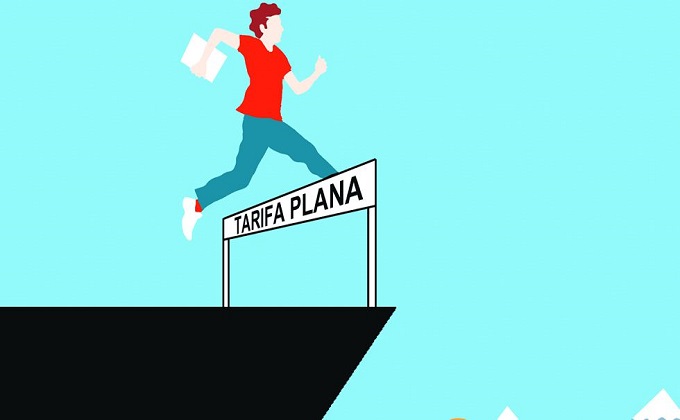Cases in which the self-employed may extend their flat rate even more than two years
The following information may seem rather confusing so we suggest, if in doubt, consult your gestor.
Last year, the self-employed with a flat rate paid 50 euros a month in instalments, an amount that increased to 60 euros, from January 2019. In general, this bonus in the instalments for new self-employed workers lasts twelve months. In this period, 60 euros will be paid as Social Security contributions.
From months 12 to 18 of activity the reductions continue. If the minimum contribution base is chosen in the six months after the first year, the reduction will be 50%. From months 18 to 21 there a reduction of 30%, and from months 21 to 24 a 30% discount.
Therefore, the self-employed will enjoy two years flat rate, accessible to any new self-employed (or professional who has not been been in the system in the previous two years).
The Flat Rate Can Be Extended
Apart from the initial proposal, there are circumstances and requirements that allow to extend, even longer, those two years of discounts. The flat rate could be lengthened in cases if requested by men under 30 or women under 35 years of age . In those cases there may be a 30% bonus during the following 12 months. In total there would be three years flat rate.
In the case of people with disabilities of a degree greater than or equal to 33% and victims of gender violence, there would be a reduction of € 60 / month in the first 12 months or 24 months in the municipalities of less than 5,000 inhabitants, or a reduction of 80% on minimum base quota during the first 12 months, depending on base programmes.
Within this profile, another 48 months of bonuses should be added on the minimum basis. Specifically, a 50% reduction, which gives us a final result of five years of flat rate for this collection.
Other benefits, although within two years of flat rate
Self-employed people in rural areas will also have benefits. The main difference with respect to the usual flat rate is that the inhabitants of less than 5,000 inhabitants will pay, during the first two years, 60 euros, in any of the cases.



